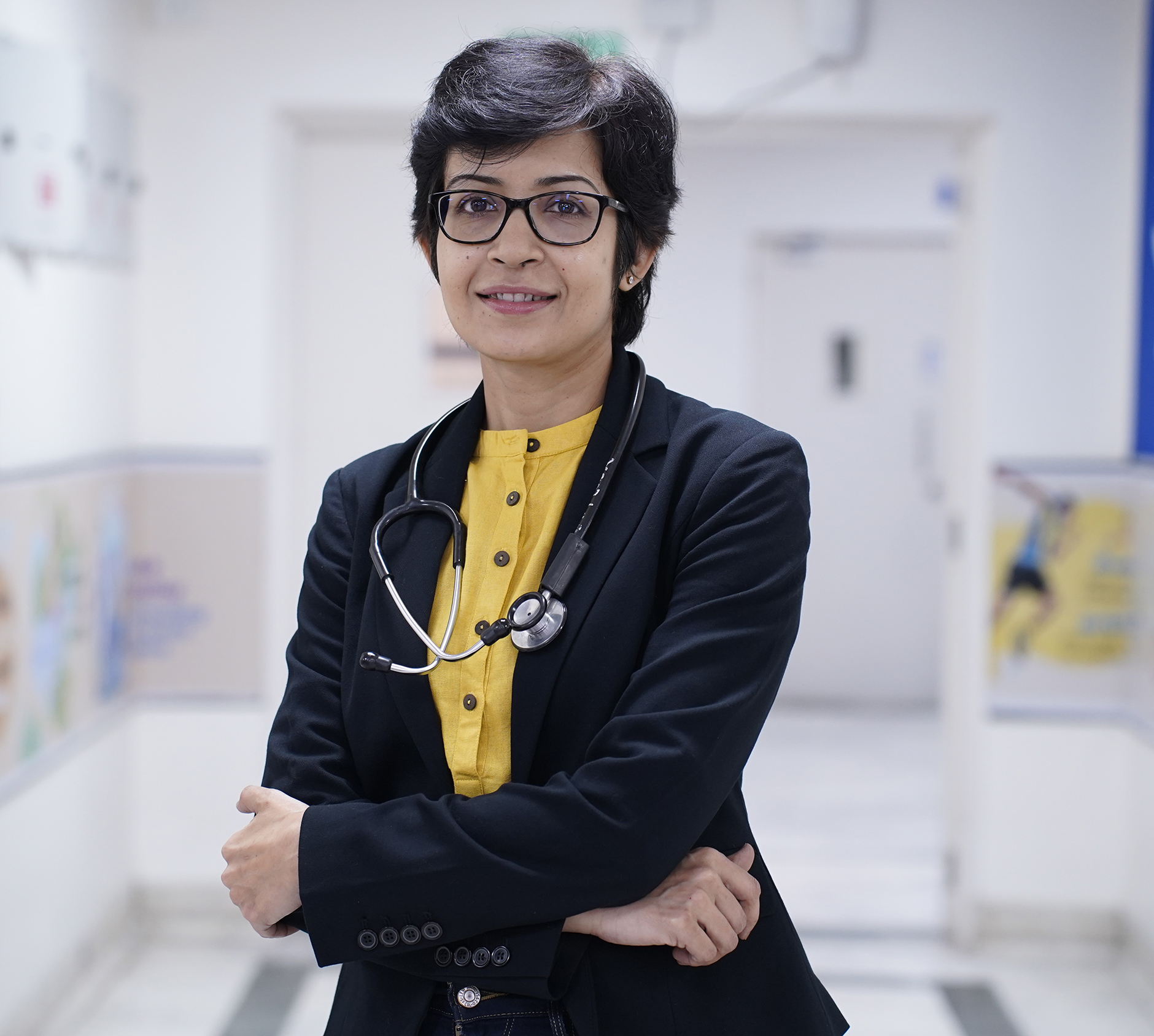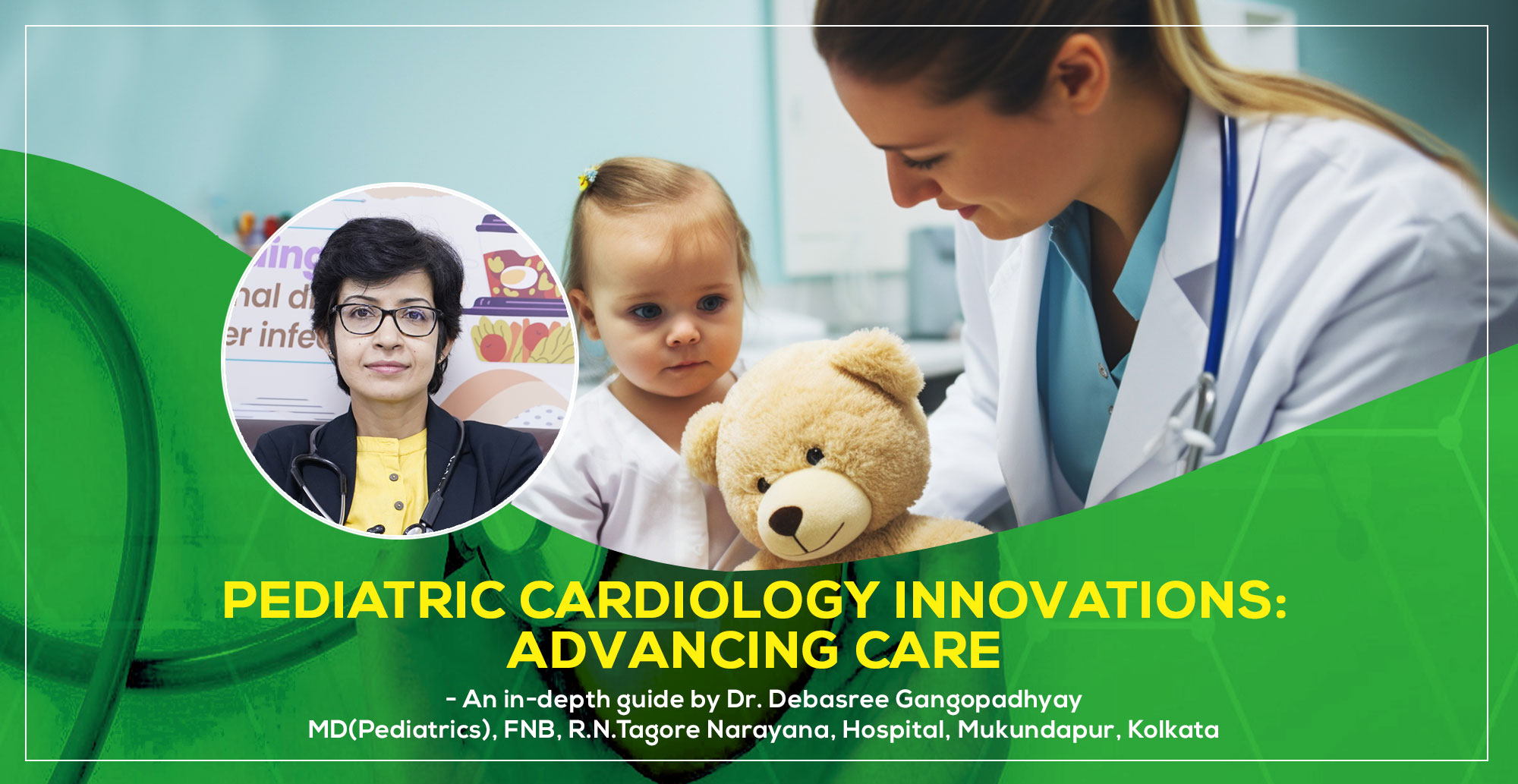Subtotal $0.00
Pediatric Cardiology Innovations: Advancing Care
– A detailed discussion by Dr. Debasree Gangopadhyay, Padiatric Cardiologist in Kolkata, India
Introduction
Pediatric cardiology has advanced significantly in diagnosing and treating heart diseases in children. Doctors are now able to give better care, increasing survival rates and quality of life, because of the ongoing progress of pediatric cardiology. In cities like Kolkata, advanced pediatric cardiac care is becoming more accessible, ensuring that children with heart conditions receive the best possible treatment by pediatric cardiologists in Kolkata.
Understanding Pediatric Cardiology
Pediatric cardiology focuses on diagnosing and treating heart conditions in infants, children, and teenagers. These conditions can be congenital (present from birth) or acquired (developed after birth). Some common pediatric heart conditions include:
- Congenital heart defects like atrial septal defects and ventricular septal defects, patent ductus arteriosus, transposition complex etc
- Arrhythmias (irregular heartbeats)
- Rheumatic heart disease
- Cardiomyopathies (heart muscle disorders)
The Role of a Pediatric Cardiologist
A pediatric cardiologist is a doctor who specializes in diagnosing and treating heart problems in children, from newborns to teenagers. These doctors handle conditions like congenital heart defects (present at birth), heart rhythm problems, and other heart-related issues that affect young patients.
Their expertise includes:
- Performing clinical screenings and echocardiograms
- Managing congenital and acquired heart diseases
- Recommending treatments such as medications, lifestyle changes, interventions or surgeries
- Fetal echocardiography, allowing early diagnosis of heart defects before birth
Advancements in Pediatric Cardiology
The field has seen remarkable technological advancements, including
- Minimally Invasive Procedures: Techniques like catheter-based interventions reduce the need for open-heart surgery.
- 3D Imaging and Printing: Helps doctors better understand complex heart defects and plan surgeries more accurately.
- Artificial Heart Valves: Specially designed valves now last longer and reduce the need for repeated surgeries in children.
- Genetic Research: Helps identify heart conditions early, sometimes even before birth, improving treatment outcomes.
Pediatric cardiology has advanced significantly, improving survival rates and quality of life for children with heart conditions. With continuous research, the future holds even better solutions for child hearts.
Interventional Cardiology in Pediatrics
An Interventional Cardiologist specializes in non-surgical heart procedures, reducing the need for open-heart surgery. These medical professionals are trained to perform a wide range of procedures, including catheter-based interventions, angioplasty, and device placements. Their area of expertise is efficiently treating cardiac problems in youngsters using cutting-edge procedures.
Some common procedures include:
- Balloon angioplasty to open narrowed heart valves
- Device closure for holes in the heart (ASD, VSD)
- Stent placement for blocked arteries
With continued advancements, interventional cardiology is an innovative technique the treatment landscape for children with heart conditions in Kolkata. Skilled interventional cardiologists offer hope and improved quality of life to children and their families.
Importance of Early Diagnosis in Pediatric Heart Care
Early detection of heart conditions can save lives. Parents should watch for signs like:
- Rapid breathing or difficulty feeding
- Bluish skin (cyanosis)
- Poor growth and fatigue Diagnostic tests such as ECGs, echocardiograms, and Holter monitoring can help detect issues early.
Innovative Diagnostic Techniques
Modern diagnostics have improved the accuracy of heart condition detection. Advanced techniques include
- Fetal echocardiography for prenatal heart assessment
- MRI and CT scans for detailed imaging
Surgical Innovations in Pediatric Cardiology
For severe conditions, surgery may be required. Some groundbreaking innovations include
- Robotic-assisted surgeries, which improve precision
- 3D printing technology, helping doctors plan surgeries better
Non-Surgical Treatment Advancements
Many heart conditions can now be managed without surgery through:
- Advanced medications
- Interventional management
Telemedicine in Pediatric Cardiology
With the rise of telemedicine, parents can consult a Child Heart Doctor in Kolkata remotely. Telemedicine benefits include:
- Quick consultations without hospital visits
- Remote monitoring for post-surgery patients
Cardiac Care Centre Facilities on Pediatric Cardiology Innovations
Modern cardiac care centres are revolutionizing pediatric cardiology with advanced facilities that enhance diagnosis, treatment, and recovery for children with heart conditions. Equipped with cutting-edge technology, these centres offer
- Advanced Diagnostics—Fetal echocardiography, 3D imaging, and genetic testing for early detection.
- Minimally Invasive Treatments—Interventional procedures like catheterization and stent placements by expert interventional cardiologists in Kolkata reduce surgical risks.
- Specialized Pediatric Cardiac ICUs—Providing monitoring of the child’s heart health over time and care for critically ill children.
- Comprehensive Rehabilitation – Post-treatment recovery programs, including physiotherapy and dietary guidance.
- Telemedicine Services—Remote consultations with a pediatric cardiologist in Kolkata, ensuring timely medical support.
These innovations are transforming pediatric cardiology in Kolkata, ensuring better survival rates and improved quality of life for young heart patients.
Kolkata is home to some of India’s best pediatric cardiac care centers. Leading hospitals offer
- State-of-the-art diagnostic and treatment facilities
- Expert cardiologists specializing in pediatric heart care
Support and Rehabilitation for Pediatric Heart Patients
Recovery is crucial for children with heart conditions. Rehabilitation programs focus on:
- Physical therapy to strengthen the heart
- Emotional support for children and their families
Preventive Measures for Pediatric Heart Health
Parents can help prevent heart conditions by:
- Encouraging a balanced diet and regular exercise
- Ensuring vaccinations against infections like rheumatic fever
- Ensuring smoke-free in your home because secondhand smoke can be harmful to your child’s heart
Future of Pediatric Cardiology
With AI and machine learning, the future of pediatric cardiology looks promising. Ongoing research and technological development will enhance better care and treatment options. Research is ongoing in:
- AI-driven diagnosis for quicker detection
- Stem cell therapy for repairing damaged heart tissue
Pediatric Cardiology Innovations in Kolkata
Pediatric cardiology in Kolkata has witnessed remarkable advancements, ensuring better diagnosis and treatment for children with heart conditions. With cutting-edge technologies like fetal echocardiography, 3D imaging, and AI-driven diagnostics, early detection of congenital heart diseases has become more accurate. Interventional cardiology has revolutionized treatment with minimally invasive procedures such as balloon angioplasty and device closures, reducing the need for open-heart surgeries.
Renowned pediatric cardiologists in Kolkata are now leveraging robotic-assisted surgeries and telemedicine, making specialized heart care more accessible. These innovations are significantly improving survival rates and enhancing the quality of life for young patients.
For expert consultation, families can now rely on top child heart doctors in Kolkata, ensuring world-class pediatric heart care right in the city.
The Role of Hospitals in Pediatric Cardiology Innovations in Kolkata
Hospitals play a crucial role in advancing pediatric cardiology in Kolkata by integrating cutting-edge technologies, expert medical professionals, and state-of-the-art treatment facilities. Leading hospitals in the city are equipped with advanced diagnostic tools like 3D echocardiography, fetal echocardiography, and cardiac MRI, enabling early detection of congenital and acquired heart conditions in children.
Renowned hospitals also specialized in pediatric cardiologists and interventional cardiologists in Kolkata, offering minimally invasive procedures such as balloon angioplasty and device closures to treat heart defects without open-heart surgery. With on-going research, telemedicine services, and multidisciplinary care, these hospitals ensure that children receive comprehensive, innovative, and life-saving cardiac treatments, improving survival rates and quality of life.
Conclusion
Pediatric cardiology has made tremendous progress, offering better care and improving the lives of children with heart conditions. With innovations in diagnostics, treatment, and technology, the future of pediatric heart care looks brighter than ever.
FAQs
- What are the signs that my child might have a heart problem?
Rapid breathing, bluish skin, poor growth, and excessive fatigue may indicate a heart issue. - Can heart defects in children be cured?
Many congenital heart defects can be cured with surgery or interventional procedures. - What is the role of a Pediatric Cardiologist in Kolkata?
They diagnose and treat heart conditions in children. - Are non-surgical treatments effective for pediatric heart conditions?
Yes, many conditions can be managed with medications and lifestyle changes. - How does telemedicine help in pediatric cardiology?
It allows remote consultations, saving time and ensuring timely medical advice.

Dr. Debasree Gangopadhyay is a highly respected pediatric cardiologist based in Kolkata, India, specializing in the diagnosis and treatment of heart conditions in children. With a compassionate approach and a commitment to excellence, Dr. Gangopadhyay has made significant contributions to the field of pediatric cardiology. Her expertise includes managing congenital heart defects, arrhythmias, and other cardiovascular conditions in young patients. Dr. Gangopadhyay is dedicated to providing personalized care and staying updated with the latest advancements in pediatric cardiology. She is passionate about educating families on heart health and actively participates in research and community outreach programs.




Comments are closed